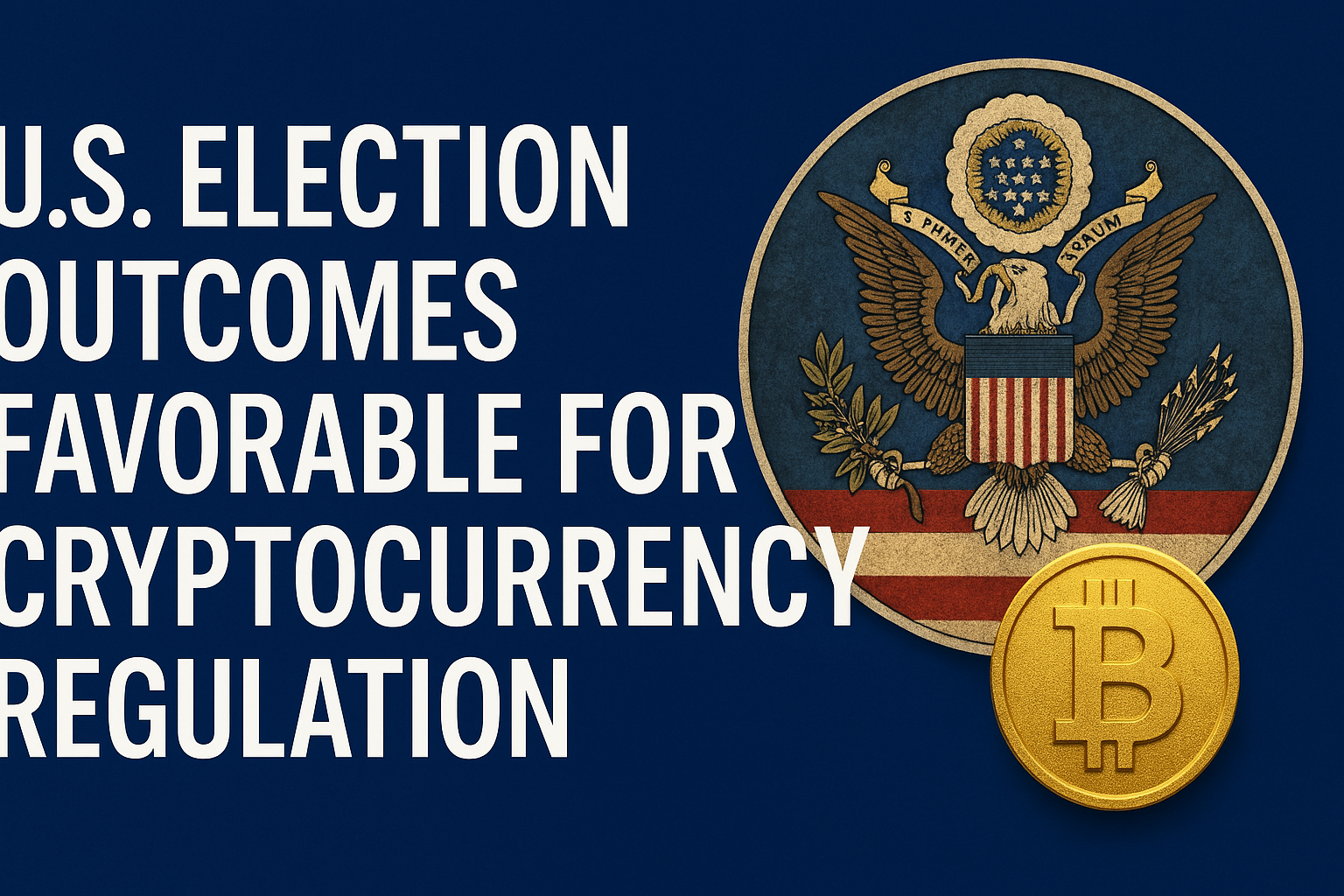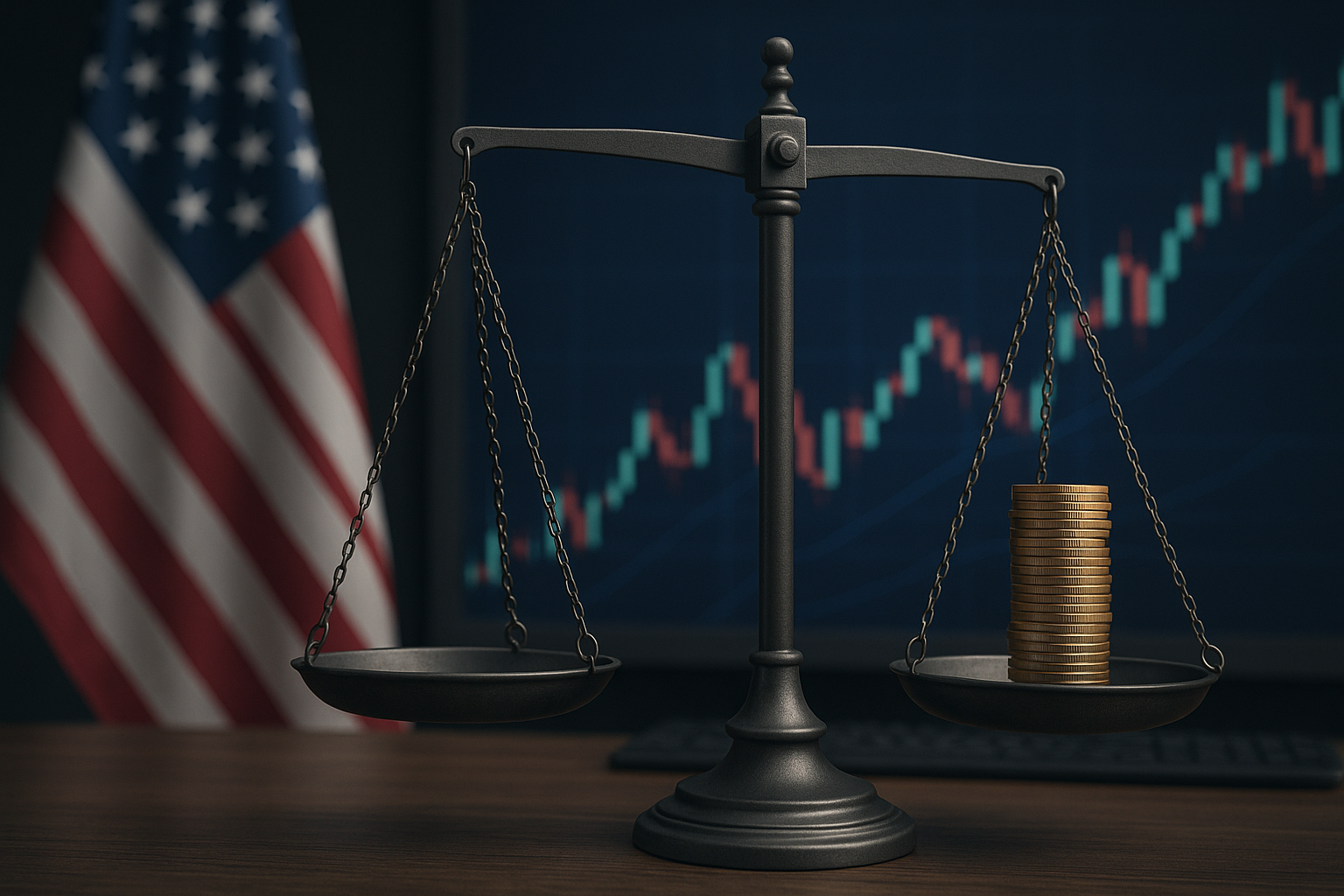A Pro-Crypto Political Wave? U.S. Election Ushers in Regulatory Optimism for Digital Assets
The 2024 U.S. presidential and congressional elections have shifted the political tides in favor of cryptocurrency. With President-elect Donald Trump returning to office and a GOP-led Congress, the new administration has expressed a notably positive stance on digital assets. Trump’s platform has embraced Bitcoin as a strategic national reserve asset and supports comprehensive reforms to existing crypto regulations.
This political shift comes at a pivotal time for the industry, following years of regulatory ambiguity and enforcement crackdowns. For investors, the new administration’s pro-crypto rhetoric signals a potentially transformative moment in the integration of blockchain technology into mainstream finance.
Why This Matters for Investors
During his campaign, Trump made headlines by suggesting the U.S. should consider holding Bitcoin in its strategic reserves—a stark contrast to previous administrations’ cautious tone. His economic advisors have also floated the idea of launching a U.S.-backed crypto innovation hub, aimed at fostering public-private partnerships in blockchain development.
According to a recent BlockBeats report, several GOP leaders are already drafting legislation to redefine crypto as a commodity, limit the SEC’s jurisdiction, and establish clearer tax treatment for digital assets. CoinDesk notes that this includes plans for a “Crypto Bill of Rights” aimed at protecting self-custody, peer-to-peer transactions, and innovation from regulatory overreach.
With the House and Senate also leaning more conservative post-election, the likelihood of such legislation passing has increased significantly.
Future Trends to Watch
- Regulatory Clarity and Innovation Zones: Analysts expect the creation of designated “Digital Asset Zones” where crypto startups can operate under lighter regulatory constraints, similar to free-trade zones. This could spark regional innovation hubs across states like Wyoming, Texas, and Florida.
- Central Bank Digital Currency (CBDC) Opposition: The new administration has expressed skepticism toward a U.S. CBDC, citing privacy concerns. Instead, focus may shift toward supporting private stablecoins that comply with updated transparency and audit standards.
- Institutional Crypto Integration: With regulatory overhang easing, institutional investors—such as pensions, insurers, and endowments—may increase crypto allocations. Expect renewed momentum in ETFs, DeFi-adjacent platforms, and blockchain infrastructure plays.
- Global Implications: A pro-crypto U.S. may influence other G20 nations to adopt more favorable policies. Nations like the UK and UAE, already vying for crypto dominance, may react to avoid losing financial innovation leadership.
Expert Commentary & Supporting Data
NBC New York reports that over 62% of self-identified investors surveyed in swing states viewed crypto-friendliness as a favorable political trait. Furthermore, Coinbase’s 2025 Q1 lobbying report revealed a 37% increase in political contributions and advocacy efforts from the crypto industry.
BlockBeats highlights that post-election, Bitcoin jumped 9% in a week, reflecting growing optimism. Meanwhile, CoinDesk notes that crypto PACs spent over $70 million in the 2024 election cycle—triple the amount from 2020.
Key Investment Insight
Investors should monitor upcoming legislative proposals and regulatory agency appointments. Assets tied to U.S.-regulated exchanges, compliance-focused platforms, and tokenization firms could benefit disproportionately.
Consider strategic exposure to public crypto firms, lobbying-backed ETFs, and long-term plays in blockchain infrastructure. Crypto policy tailwinds, combined with easing interest rates, create a uniquely favorable investment climate for digital assets in 2025.
Stay Ahead with MoneyNews.Today
With Washington signaling a new era for crypto, the investment narrative is rapidly evolving. Stay with MoneyNews.Today for daily insights on regulation, markets, and emerging opportunities shaping the future of finance.





